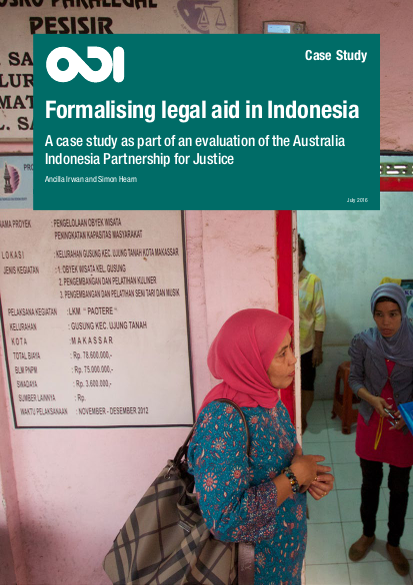
Universal access to justice has been part of Indonesia’s constitution since the founding of the state. But it is only since the landmark 2011 Law on Legal Aid that the government systematically starting supporting provision of legal aid to the country’s poorest and most vulnerable citizens. The new law guarantees the state’s obligation to protect citizens’ right to have access to justice, and formalises a relationship with civil society organisations (CSOs) that for decades have been providing legal aid services and advocating for greater government responsibility.
This is one of three case studies that contribute to an evaluation of civil society organisations' contributions to justice reform in Indonesia. The evaluation was commissioned by the Australia Indonesia Partnership for Justice (AIPJ) and undertaken by ODI in 2015 and 2016. The full report can be found here.
This case study presents an overview and history of legal aid in Indonesia, highlighting in particular various dimensions of civil society involvement in developing the legal aid system – from initial advocacy calling for change through to technical support to implement the process itself. Different aspects of the partnership between CSOs and government institutions include some that are very willing to receive support and others that are more resistant.
Finally, the case study explores AIPJ’s strategies to support CSOs directly through capacity development and indirectly by focusing on government institutions with advocacy and technical support.